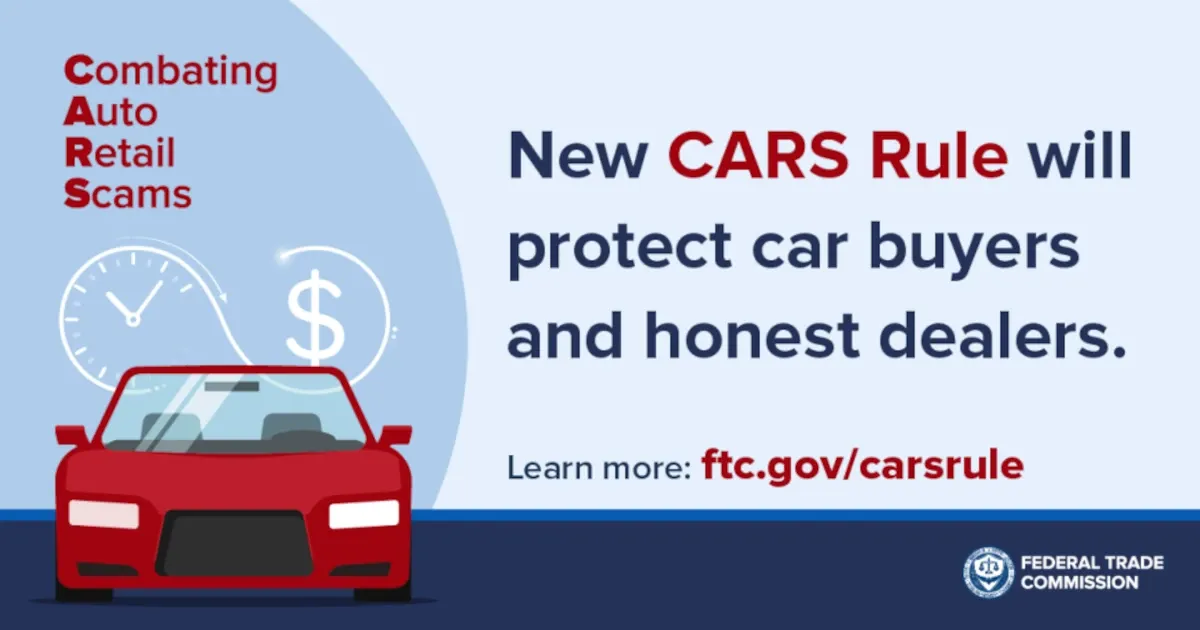Deceptive sales practices will be banned under the new rule
Buying a car is often an exercise in frustration. Misleading ads, hidden fees and mushmouth salespeople can trick consumers into spending more for less. The Federal Trade Commission's new Combating Auto Retail Scams (CARS) Rule aims to change that by stopping bait-and-switch tactics and hidden fees.
Here’s what the Rule means for car and truck buyers like you, as explained by the agency in a consumer bulletin.
Pricing and payments
- A dealer must tell you the offering price, which is the full price of the vehicle. The offering price must include all costs and fees EXCEPT for required government fees, like taxes and license and registration costs.
- If a dealer is quoting monthly payments, they must tell you the total amount you’ll pay for the vehicle. And if they offer you a lower monthly payment, they must tell you if it will raise the total cost of the vehicle.
Add-on products or services
- You have the right to refuse any products or services that increase the price of the vehicle. Like what? Rustproofing, protective paint coatings, extended warranties, guaranteed asset protection (GAP) agreements, and wheel and tire warranties.
- A dealer can’t charge you for products or services that have no benefit like
- a duplicative warranty
- a service contract for oil changes on an electric vehicle
- nitrogen-filled tires that contain no more nitrogen than normally exists in the air
- a GAP agreement that doesn’t cover your vehicle or your neighborhood or other parts of your deal
Real consent for all charges
- A dealer can’t charge you for any item unless they’ve told you what it is and how much it costs, and you’ve agreed to the charge.

The CARS Rule will make it easier to shop around for a vehicle based on the actual price. And the FTC estimates that car buyers will save $3.4 billion per year.
The Rule takes effect on July 30, 2024. Stay tuned in the weeks and months to come for more advice about buying a car or truck at a dealership.

